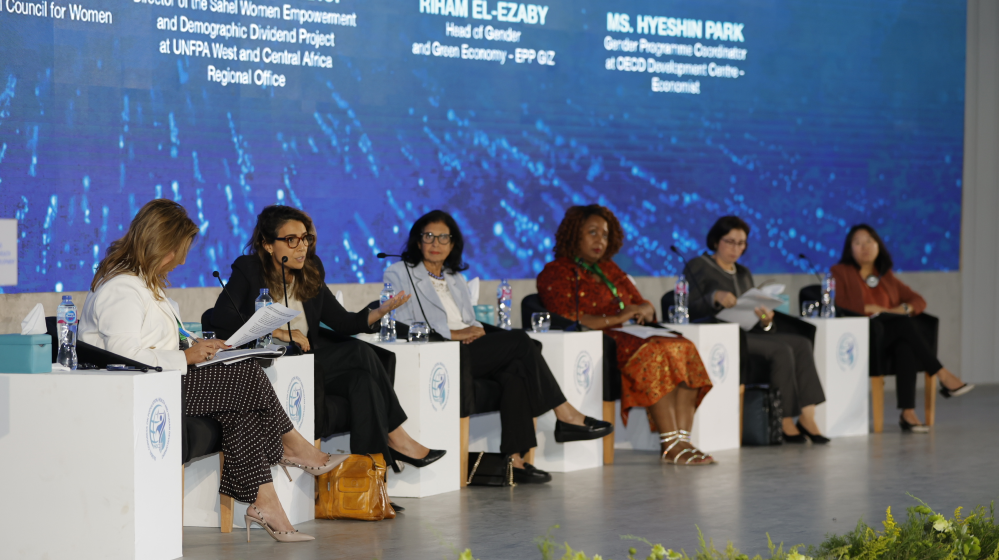UNFPA organized a panel discussion on “Empowering Women and Youth for Inclusive Development,” at the Global Congress for Population, Health and Human Development on October 23, where experts presented showcased different global and regional programs and models tailored to women and youth empowerment in different contexts.
The panel was moderated by Germaine Haddad, UNFPA Assistant Representative in Egypt, and brought together Dr. Nafissatou J. Diop, Director of UNFPA’s Sahel Women’s Empowerment and Demographic Dividend Programme, West and Central Africa, and former Head of Gender and Human Rights Branch, Dr. Nadia Zakhary, Former Minister of Scientific Research, Member of the National Council for Women, Ms. Susanne Mikhail, Director, Surging Women Employment in the Green, STEM and Care Economy, Ms. Riham El-Ezaby, Head of Gender and Green Economy at GIZ Egypt and Ms. Hyeshin Park, Economist and Gender Program Coordinator at OECD.
In her opening remarks, Haddad said that women’s equality, empowerment and development are a fundamental right and are also a central element of the overall development of a nation.
“Only through promoting human capital development, social justice inclusive economic development, and maintaining healthy societies, can nations thrive,” she said.
On her part, Diop presented the Sahel Women’s Empowerment and Demographic Dividend (SWEDD) model, which aims at accelerating the demographic dividend through empowering women and girls.
She explained that SWEDD is based on three main strategies; promoting social and behavioral change and the empowerment of women and adolescent girls; reinforcing the regional availability of reproductive health commodities and qualified service providers; and advocacy and dialogue at high levels.
“If we want to reduce maternal mortality, to reduce gender-based violence including female genital mutilation (FGM) and child marriage, we need to focus on adolescent girls and ensure they have the skills agency and capacity to live a different type of life,” Diop said.
She mentioned that working with adolescent girls requires focusing on the four E’s; enhance, educate, empower and employ.
Watch the full session


